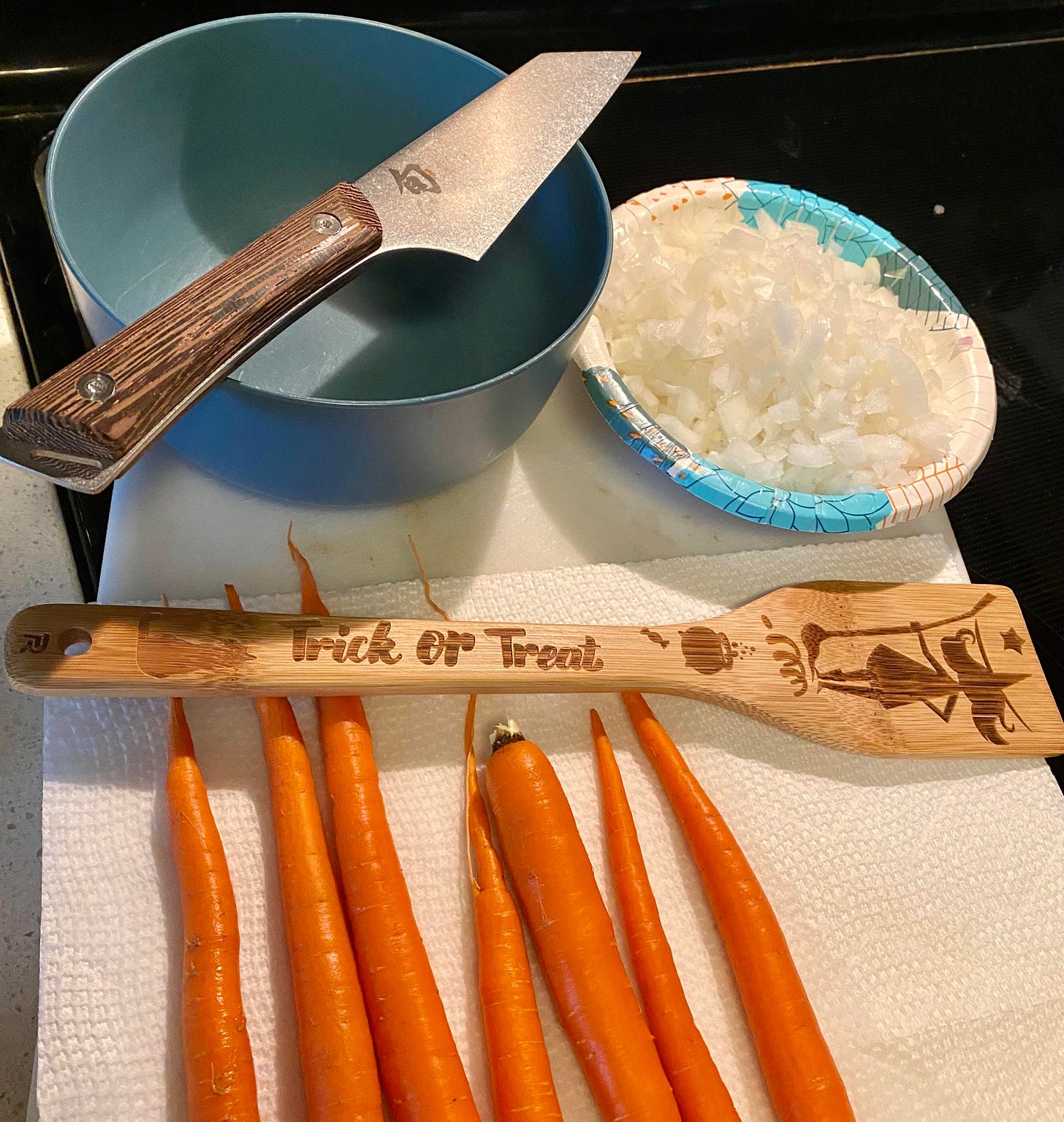September Reflections
or, Fall and Fear Have Much to Teach Us, But Only if We're Afraid of the Right Things
It’s Labor Day, and here in Portland, Oregon, the weather has taken a decidedly fall-like turn over the last couple of weeks. We’ve had mostly overcast days, occasional light rain, and high temperatures tumbling down into the 70s. Today’s high is even lower at 69° Fahrenheit, and tonight my chosen sister M. and I whipped up our first soup of the season—a nice, hearty chicken noodle we wanted because both of us are currently dealing with colds. M. insists that she’ll wait a few more weeks before indulging in pumpkin spice, something she quite enjoys and that I’m mostly indifferent to, but the changing of the seasons seems to be upon us. And the cooler, damper, gloomier weather is certainly a welcome development after an intensely hot summer.
According to Celtic lore, as the days get shorter, the veil between the living and the dead becomes thinner, particularly between the fall equinox (which will occur on September 22) and Samhain, the Pagan festival in which our modern celebration of Halloween has its roots. With August behind us, we’re now headed into the traditional season of ghosts and witches and assorted monsters, which is something I, as your friendly neighborhood bugbear, welcome.
Autumn, Identity, and Mortality
Halloween is M.’s favorite holiday, and I suppose it’s mine too, though I haven’t made much of an effort for it in recent years (something I can hopefully correct this year). As is somewhat exceptional for the evangelical Protestants we were raised as, we were both allowed to indulge in some celebration of the day as children. Neither of us was allowed to wear scary costumes—certainly no demons or witches both of which were “real” and dangerous “enemies of God” that it would be very sinful to emulate in any way—but we could do a little trick-or-treating.
Many evangelicals and fundamentalists literally believe Halloween to be “the Devil’s holiday” and spend the evening praying against “demons,” attempting to “bind” them “in Jesus’s name” from engaging in whatever nefarious demonic activities they’re planning for the night. There’s a whole 1980s Satanic panic era literature on this and related topics (not to mention more recent publications), largely fact-free but quite telling with respect to the extreme paranoia that defines evangelical subculture.
But not all evie kids have to stay home and pray. Some take part in “hell houses,” evangelical alternatives to haunted houses that depict scenes from “hell” with the goal of scaring visitors into salvation. And some whose parents won’t allow them to celebrate Halloween still get to attend church-hosted “harvest festivals,” where the vibe is typically pretty lame, but at least you still come out with candy. Some years in my childhood, we would hit a Christian harvest festival in addition to doing some trick-or-treating.
Halloween was definitely my childhood self’s favorite holiday. The prospect of receiving an abundance of candy was, naturally, one of the reasons I loved the day so much, but it wasn’t the biggest draw. The main reason I loved Halloween was because it gave me the opportunity to wear a costume, to try on another identity and walk around in it for a while. Even though I was forbidden from saying “Trick or treat!” and instead, like a dork, had to say “Happy Halloween!” to everyone who opened their doors while I was trick-or-treating in my appropriately non-scary costume (I went as a rabbit one year, for example), embodying a new identity held real magic for me—at least as much magic as Christmas morning (which has lost its magic entirely for adult me, but that’s another story).
There was something deliciously subversive about appearing as something I was not, and there was a kind of freedom in it, a space for play and exploration of the sort that evangelical subculture as a rule does not encourage. I suspect that for many queer kids being raised in such an oppressive form of Christianity, Halloween, if they’re allowed to celebrate it, is a beloved reprieve. It was similar to theater for me—and I did some acting in my childhood, community theater and even once in an Equity house, as well as all the school plays. And I think there’s a reason that so many LGBTQ folks are drawn to theater. When being yourself can get you into serious trouble, or you’re so repressed that you don’t know how to be yourself, having permission to be someone else for a while is strangely empowering.
Keep reading with a 7-day free trial
Subscribe to The Bugbear Dispatch to keep reading this post and get 7 days of free access to the full post archives.



